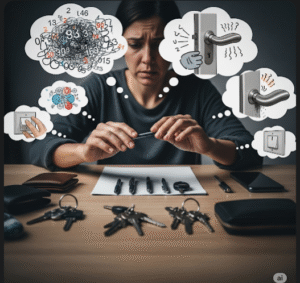A Growing Conversation About Mental Wellbeing
Mental health has become one of the most important topics in South Korea today. For a long time, emotional struggles and psychological illnesses were overlooked or misunderstood, but this is finally changing.
As society modernizes, social pressures, long working hours, and academic competition have brought mental health into the spotlight. Across schools, workplaces, and media, more Koreans are now realizing that mental wellness is just as vital as physical health.
➤ Understanding the Cultural Context
Korean culture traditionally values perseverance, harmony, and self-discipline. While these traits helped the nation grow, they also made it difficult to discuss personal struggles.
In the past:
- Talking about depression or anxiety was often seen as a weakness.
- People hesitated to seek therapy because of social stigma.
- Emotional pain was managed privately or ignored.
Now:
- Younger generations are more open about seeking help.
- Mental health is being discussed in schools, media, and workplaces.
- The culture is slowly shifting toward empathy and awareness.
This growing openness marks a major cultural transformation — one built on understanding rather than judgment.
➤ Why Mental Health Awareness Matters in Korea
Stress affects nearly everyone in modern Korean life. The need for mental health awareness is clear because of:
- Academic pressure: Students face long study hours and extreme competition.
- Workplace demands: Many professionals work late, face burnout, or lack work-life balance.
- Social expectations: There is constant pressure to succeed, look perfect, and please others.
- Digital comparison: Social media adds anxiety through constant comparison.
Result: Rising rates of depression, anxiety, and stress-related illness. Awareness helps people seek help early, manage stress better, and build healthier relationships with themselves and others.
➤ Government and Community Efforts
Korea has taken strong steps toward better mental health infrastructure.
Government actions include:
- Opening Mental Health Welfare Centers across the country.
- Launching public campaigns like “Mind Health 365” to promote year-round care.
- Expanding 24-hour helplines and online counseling services.
- Funding programs that integrate mental wellness into hospitals and schools.
These services make it easier for people to access help privately and safely — breaking down the barrier of fear or embarrassment.
➤ The Role of Media and Celebrity Advocacy
Korean media and public figures now play a key role in normalizing mental health discussions.
Positive changes:
- K-pop idols and actors have spoken about their struggles with burnout or depression.
- TV dramas and documentaries portray therapy and emotional healing more realistically.
- Wellness shows and podcasts encourage open conversations about anxiety, loneliness, and self-love.
When public figures speak openly, it sends a powerful message: mental health struggles can affect anyone, and seeking help is strength, not weakness.
➤ Mental Health in the Workplace
Workplaces in Korea are also starting to change their culture.
Growing trends:
- Some companies now offer “mental health days” and flexible working hours.
- Counseling services are being added to HR departments.
- Stress-management workshops help employees learn mindfulness and relaxation techniques.
Lifestyle impact: Happier employees, better teamwork, and healthier work environments — all vital for long-term productivity and emotional balance.
➤ Young Koreans Are Leading Change
The younger generation, especially Millennials and Gen Z, are driving the shift in attitudes.
How they’re making a difference:
- They are more comfortable sharing their feelings and seeking therapy.
- Social media is used to spread awareness, resources, and encouragement.
- Online communities provide peer support and promote positivity.
- Schools and universities now offer counseling and wellness programs to help students manage stress.
This openness is helping break the stigma faster than ever before, inspiring parents and teachers to listen more and judge less.
➤ Traditional and Modern Healing Working Together
In Korea, many people combine modern psychology with traditional Korean medicine (Hanbang) for holistic care.
Traditional methods include:
- Herbal remedies and acupuncture to calm the mind and body.
- Breathing exercises and meditative movement to restore balance.
- Herbal teas like jujube, ginseng, and chrysanthemum to ease anxiety.
Modern approaches:
- Therapy and counseling for emotional awareness.
- Mindfulness and yoga for stress relief.
- Digital mental health apps for private guidance.
Together, these approaches reflect Korea’s philosophy: true health is harmony between mind and body.
➤ Education and Early Intervention
Schools are becoming vital in teaching students about mental wellness early in life.
Key actions:
- Teachers receive mental health awareness training.
- Schools employ counselors to support children under pressure.
- Students learn about mindfulness, empathy, and stress management.
Lifestyle benefit: Early education builds resilience and prevents emotional burnout later in life. It helps young people understand that asking for help is normal and healthy.
➤ Overcoming Stigma Step by Step
Despite progress, stigma remains one of the biggest challenges in Korea.
To reduce stigma:
- Treat mental health like physical health — equally important.
- Encourage open conversations in families, schools, and workplaces.
- Share stories of recovery and self-care to inspire others.
Lifestyle reminder: Recognizing emotional pain and seeking help is not weakness — it’s courage and self-respect.
➤ The Future of Mental Health Awareness in Korea

Korea is entering a new era where emotional wellbeing is part of everyday life. The country’s progress includes:
- Integrating mental wellness centers into hospitals.
- Expanding online therapy platforms for accessibility.
- Promoting community connection programs to combat loneliness.
- Including mental health topics in public education and workplace policy.
These initiatives show that Korea is moving toward a society where compassion, understanding, and mental health care are part of the national identity.
Final Thoughts: Building a Kinder, Healthier Korea
The importance of mental health awareness in Korea goes beyond personal wellness — it’s about building a more empathetic and supportive culture.
By promoting understanding, reducing stigma, and providing access to care, Korea is showing that mental wellness is not just a medical issue — it’s a social value.
Key takeaway:
- Talk openly about emotions.
- Support friends and family without judgment.
- Remember that mental strength comes from connection and care.
As more Koreans embrace this mindset, the country moves closer to a healthier future — one where mental health is celebrated, protected, and understood as essential to life itself.













